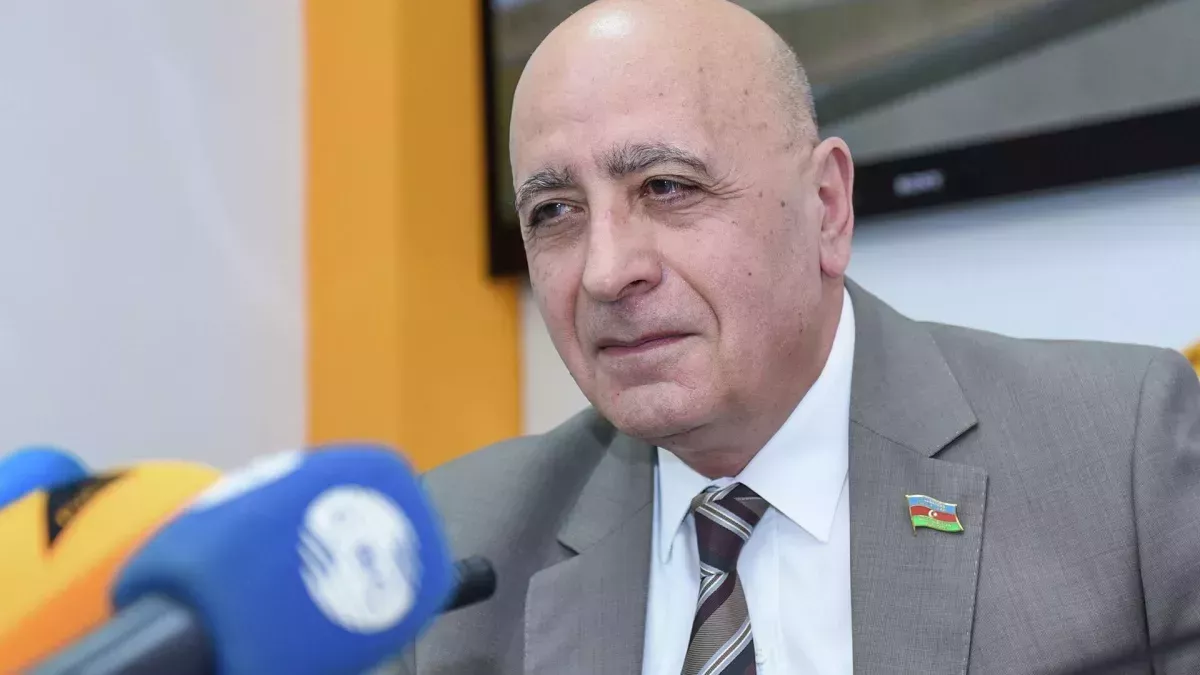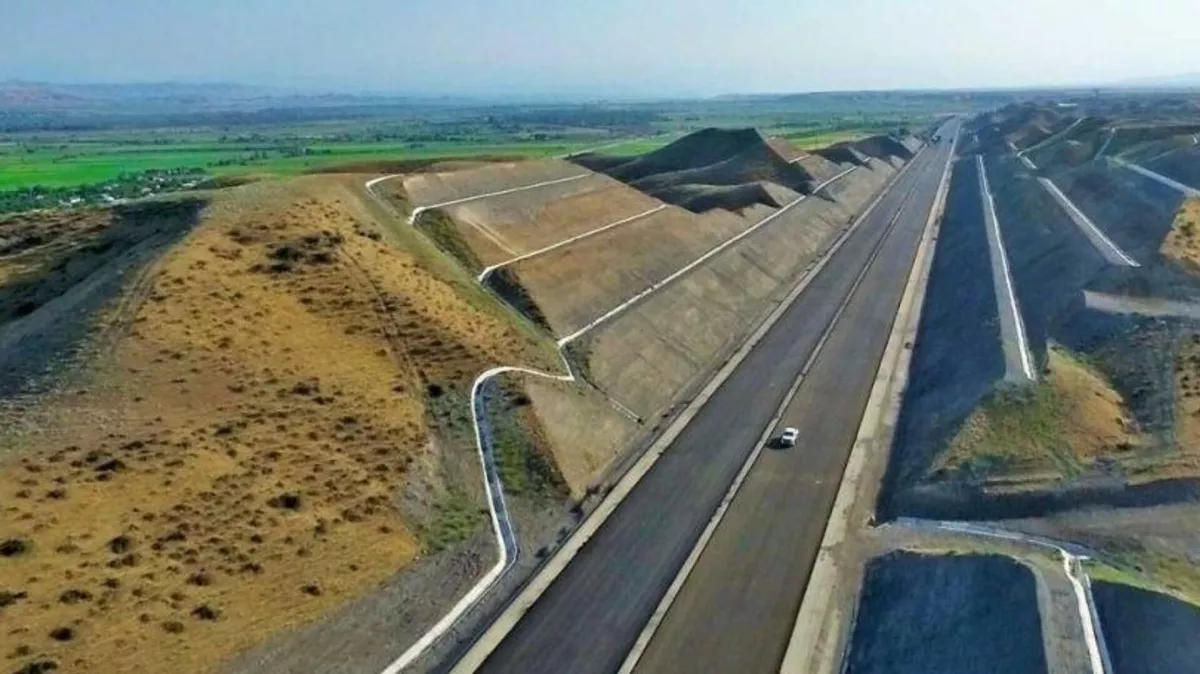Baku, Yerevan, Washington: How will TRIPP work in practice? Expert opinions on Caliber.Az
In Yerevan, statements about practical work on the creation of TRIPP (Trump Route for International Peace and Prosperity) are being voiced with increasing frequency. For instance, the country’s Minister of Economy, Gevorg Papoyan, stated that “the unblocking of communications will open the ‘economic lungs’ of Armenia.”
“In fact, we are already at the working stage. The transformation of Armenia into a transport hub is already underway. The residents of Meghri and Kapan [Gafan — ed.] see every day how the mountains are being cut through and a new North–South road is being built,” he said.
In turn, the Speaker of the Armenian Parliament, Alen Simonyan, referring to the “Trump Route,” cited the management model of the Argentine company operating Zvartnots Airport as an example.
“Abstractly, hypothetically speaking, the construction of energy infrastructure could be handled by an Armenian company, while the railway could be managed by another company. These issues will be decided by a joint Armenian-American organisation,” he noted.
Will Baku be involved in the construction process of this route, and how will issues of security and cooperation with Armenia and the United States be addressed? Will border and customs control over Azerbaijani cargo and citizens be implemented? And how will Russia be present — or absent — in this scheme, given that Russian border guards are still responsible for certain segments of Armenia’s border?
American and Azerbaijani political analysts shared their views on these questions with Caliber.Az.

American pundit Andrew Korybko noted that the United States has not fully disclosed its plans regarding the TRIPP corridor, and the only thing known for certain is that they intend to lease this route. However, in his view, Trump is counting on the United States profiting from the corridor, and therefore would prefer American companies to play a leading role in all related work.
“Subcontracting agreements with Armenian companies are hypothetically possible if American companies deem them competent. Regarding security, the following can be said: although some suggest that conflicts or even clashes could arise between the Iranian side and US citizens working on or operating TRIPP, Trump is unlikely to allow such actions by Iran to go unpunished. A decisive response would most likely follow.
Another strategic aim of Washington is that TRIPP will strengthen Western influence in Central Asia through Türkiye — a NATO member — which, in turn, could advance US interests by undermining Russia’s influence in the region,” Korybko stated.

According to Azerbaijani MP and pundit Rasim Musabayov, most questions about how and by whom the TRIPP corridor infrastructure will be built, and how it will operate after launch — including security issues — can only be answered approximately at this stage.
“One of the problems that needs to be addressed is the role of Russian border guards. If Armenian border guards are present at the entry and exit points of the corridor, while Russian border guards are stationed along its entire length, you’ll agree that such a configuration would look strange.
Armenia is the only country among the former Soviet republics whose borders are guarded by Russian border troops, despite not even bordering Russia. Even Belarus has managed its borders independently since the beginning of its independence, without relying on Russian guards. Tajikistan, after a prolonged presence of Russian border troops, eventually took full control of its borders as well.
Therefore, I believe that the first thing Armenia needs to do before American businessmen begin operating there is to take full control of its border. The remaining issues, in my view, will concern financing. If the United States is one of the main partners of TRIPP, our own initiatives to fund the project are likely unnecessary. Moreover, it is already known that the US presidential administration is prepared to allocate $145 million to Armenia to finance TRIPP,” the analyst said.
He also noted that laying the railway tracks along the Armenian section of TRIPP is not a straightforward task.
“It is clear that the track-laying process can only be carried out from Azerbaijani territory for the simple reason that the track-laying machine moves along the rails, and the Meghri section is not connected to the Armenian railway network. In other words, the machine must enter Armenia either from the Aghband side or from Ordubad–Julfa. There is no other way. But before that, the railway bed needs to be restored, tunnels widened, and bridges reinforced if necessary.
Considering that the Armenians apparently plan to construct a power station and a reservoir in cooperation with Iran, part of the route will have to be relocated. All of this requires detailed engineering planning, approval of the project and budget, and the announcement of tenders. So, this is a fairly lengthy process, and they certainly won’t complete it in a year. However, if work begins immediately, it could be done within two years,” Musabayov said.
The pundit also shared his view on how customs control will operate along this section of the Zangezur Corridor.
“It should be understood that there is a difference between payments for using the railway on TRIPP and payments for vehicles passing through the corridor. In the latter case, fees will apply to the roadway. These charges will apply both to the Azerbaijani side and to everyone passing through: when entering the territory of a foreign state, the established fees are paid.
If the road is toll-based and privately operated, payments are made according to the set tariff. However, if the Armenians attempt to exploit their monopoly and excessively raise fees, the managing American company will oversee the process. Selfish attempts to profit would hinder the increase of freight transport from China and Central Asia.
The same applies to railway traffic — its movement will, of course, be monitored, and corresponding fees will apply. But we are talking specifically about usage fees, not transit customs duties; customs fees for transit passage of goods in this format are not charged,” the MP clarified.

Musabayov emphasised that the provision of cargo information is primarily a matter of security, and international practices serve as a guideline in this regard.
“Cargo documents must be submitted so that Armenia knows exactly what is passing through its territory. For example, if transporting fertilizer — which is explosive and could pose a threat — the Armenian side needs to be informed, so that no one does something careless, like dropping a cigarette, which could trigger an explosion. The same applies to liquefied gas, chemicals, and other hazardous materials—the information about the type and volume of cargo will most likely be shared, and this is standard practice followed in many countries,” he noted.
Regarding individuals, it is known that Armenia proposed using remote biometric verification — a practice already implemented in several countries. The political analyst explained how this would roughly work:
“When crossing the border, the document — meaning the passport — is placed on a scanner, biometric data is read, and the person is simultaneously recorded by a camera. The border officer visually verifies that the passport holder matches the system data and grants entry by applying a mark.
In some countries, passport stamps are not issued at all; for example, in Israel, entry and exit stamps are often omitted so that travel to Arab countries or Iran is not impeded, as the presence of an Israeli stamp could create problems. After this, the person continues their journey — by car or train. In principle, this is feasible; there are no insurmountable problems here.”
The political analyst noted that such a system would speed up border crossings and reduce direct contact, but it would require coordinated technical standards and transparent data protection rules. Most importantly, according to the expert, the principle of reciprocity must be respected, since the corridor will be used not only by Azerbaijanis.
“It will see heavy transit traffic — freight trucks, passenger vehicles from neighbouring countries and beyond, as well as citizens of Türkiye and other states travelling through Azerbaijan to Central Asia or Russia. Armenian citizens will also be among the users.
Therefore, it is essential to ensure that no artificial obstacles arise: if such restrictions affect Azerbaijanis, Armenian citizens will automatically be impacted as well — both when passing through Azerbaijani territory and when travelling to Türkiye, should similar barriers affect Turkish citizens. All these issues are solvable, and specific procedures will be developed as the communications infrastructure is built and put into operation,” Musabayov concluded.








